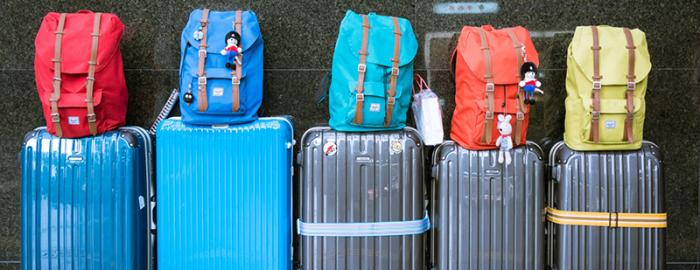With all the excitement of study away, it’s easy to overlook things that are not an issue right this second. We’ve put together this handy list to help you think about your health-related needs and take care of what needs attention before you depart.
Packing Tips
Think about things like sun protection, traveler's diarrhea, headaches, jet lag, blisters, and minor cuts. Pack some basic supplies you have at home to keep yourself comfortable.
Routine Medical, Dental, Eyecare Visits
If your normal routine visit falls during the time you’ll be away, reschedule it to another time so you don’t experience an interruption to care.
Glasses or Contact Lenses
Take an extra pair along with you. Also bring a copy of your eyeglass prescription.
Prescription Medications
- Pack an ample supply to last your entire trip, with a few spares if possible.
- Make a copy of the prescription.
- Have your healthcare provider write a note describing the medicine and why you need it. It's best to get this on letterhead paper.
- Translate the note into English and the language of your destination(s).
- If you take regular injections and need to carry syringes, carry a separate prescription for the syringes.
- Know the generic name(s), as certain brands may not be available in your host destination(s) if you need to get a refill.
Transport of your medications
- Keep all drugs in their original packaging.
- Essential medications should be carried with you while traveling and not placed in checked baggage.
- Do not have medications shipped to you, as this may be illegal in your host country and/or may cause problems with customs officials.
Are your medications restricted?
Contact your host country’s embassy and/or International SOS to determine whether any drugs on your list are restricted in your destination(s). For example, if you will travel to China, contact the Chinese embassy or consulate in your home country and ask about medication restrictions.
Vaccinations / Immunizations
- Tetanus: Be sure your tetanus vaccination is current.
- Flu: Be sure you have had the current flu vaccine.
Other vaccines to consider, depending on your location:
- Hepatitis A & Typhoid: You can't always be sure that food handlers have washed their hands properly or your water source is clean.
- Hepatitis B: Exposure to blood or body fluids can happen in vehicular accidents, unplanned sexual encounters, or unsterile needles/instruments in doctor's offices and tattoo shops.
- Malaria Prevention: See the CDC web site or call the Student Health Travel Clinic for specific information.
Proof of Immunization
Because of specific health concerns and conditions in various countries, proof that you have received certain immunizations may be required. In such cases, you must carry an official record of your immunizations and present it upon entry to the country at the same time that you show your passport and any required visa.
Your program will advise you on what is required for entry into the country where your program is located. Immunization requirement information can be found at the Center for Disease Control web site at http://www.cdc.gov/travel/
If you plan personal travel to other countries before, during, or after your program, it is your individual responsibility to know what immunizations are required.
Appointments at Student Health
- Duke students requiring or desiring immunizations should schedule an appointment at least 8 weeks prior to departure.
- Some immunizations and boosters may require intervals between injections, and during peak seasons (November and April), appointment availability may be limited.
- You may schedule your initial visit even before you know your final destination.
- Costs: The Duke Student Health Fee covers advice and consultation at the Duke Student Health International Travel Clinic. Immunizations and prescription medicines are not covered by the student health fee and must be purchased or filed against insurance. You are responsible for paying any uncovered costs on your own.
For more info, contact the Student Health Services International Travel Clinic.
The Student Health International Travel Clinic is only open to Duke students. Non-Duke students should check international travel services available in their home or college communities.















